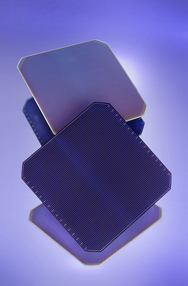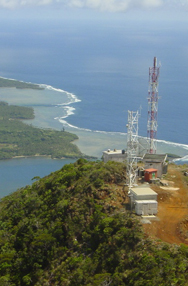| |
If you cannot view this e-mail correctly, please click here. |
|
| |

|
|
|
News from CEA´s European Projects
|
FEBRUARY, 3rd 2017 |
|

|
01
|
|
|
|
|
| |
|
|
|
|
| |
|

|
|
Summary
|

|
|
|
|
| |
|

|
Hercules tasked to produce the next generation of photovoltaics
|

|

|
Empowering the citizen in smart cities building a Cloud of Things
|

|

|
Isotopics: The renewal of isotopic labeling for strengthening European therapeutic innovation
|

|

|
Reading the weather through atmospheric waves
|

|

|
Dedale provides analysis methods to find the right data
|
|
|
|
| |
|
|
|

|
|
|
Hercules tasked to produce the next generation of photovoltaics
|

|
The European HERCULES project targets the development of the next generation of photovoltaics in Europe. Combining 16 partners during 3 years and coordinated by CEA, the project aims to develop high efficiency solar cells and modules to reach a reliable, sustainable and cost-competitive PV technology from the lab to factories.
With the ultimate goal of creating a premium European PV Technology, HERCULES PV (High Efficiency Rear Contact solar cells and Ultra powerful moduLES) aims to differentiate from the mainstream technologies used todays and bring a cost effective, reliable and sustainable solution. To reach these objectives (...) |

|
|
|
|
|
|
|
|

|
|
|
Empowering the citizen in smart cities building a Cloud of Things
|

|
Japanese and European researchers are building together the smart cities of tomorrow. ClouT project, and its recently launched successor BigClouT, aim to make cities smarter by combining benefits of Internet of Things and cloud computing.
Smart cities are a new vision for urban development. They integrate information and communication technology infrastructures – in the domains of artificial intelligence, distributed and cloud computing, and sensor networks – into a city, to increase the quality of life for its citizens and to foster sustainable growth.
Facing these new possibilities, citizens have to be in capacity (...) |

|
|
|
|
|
|
|
|

|
|
|
Isotopics: The renewal of isotopic labeling for strengthening European therapeutic innovation
|

|
Isotopics aims at the development of new methods for the chemical labeling of drug candidates to streamline drug innovation and to decrease drug attrition. The project gathers 5 academic partners and 3 pharmaceutical companies in 5 European countries. ISOTOPICS will also train 15 PhD students to meet the need of industry by providing new researchers specialized in isotopic labeling chemistry with a dual academic/industrial culture.
Drug discovery and development is a time-consuming, expensive and risky process since only one product on ten entering clinical trials will reach the market and this ratio is even reduced when (...) |

|
|
|
|
|
|
|
|

|
|
|
Reading the weather through atmospheric waves
|

|
The infrasound technology, that was first designed and used for nuclear test monitoring, now provides crucial information to characterize the atmospheric waves of natural origin and predicts their impact on meteorology for improving future weather forecasting up to several weeks. ARISE 2 monitors the stratosphere, listening to very low-frequency sound waves generated by loud sources, such as ocean waves, volcanic eruptions, supersonic aircrafts and man-made explosions.
ARISE 2, following the ARISE project, aims at establishing a unique atmospheric research and data platform in Europe. It combines observations with (...) |

|
|
|
|
|
|
|
|

|
|
|
DEDALE provides analysis methods to find the right data
|

|
A key challenge in cosmological research is how to extract the most important information from satellite imagery and radio signals. The difficulty lies in the systematic processing of extremely noisy data for studying how stars and galaxies evolve through time. This is critical for astrophysicists in their effort to gain insights into cosmological processes such as the characterisation of dark matter in the Universe. DEDALE is helping scientists find their way through this data maze.
DEDALE is an international and multidisciplinary European collaboration. The three year project aims to design novel techniques for analysing large and complicated data sets with (...) |

|
|
|
|
|
|
|
|
|
| |
|

|
|
Crédits : CEA-Ines - Alizée Gremion / Grenoble-Alpes métropole – CEA – CTBTO – ESA |

|
|
|
|
| |

|
|
|

|
|
The French Alternative Energies and Atomic Energy Commission (CEA) is a public research organization working in four main areas: defense and security, nuclear and renewable energies, technological research for industry and fundamental research. Building on its recognized expertise, the CEA takes part in implementing cooperation projects with a wide range of academic and industrial partners. With its 16,000 researchers and employees, it is a major player in European research and is also expanding its international presence. More information: www.cea.fr/english
|
|
|

|
|
|
| |

|

|
|
|
|
Contact
|

|
Guillaume Milot, Press officer
T. +33(0)1 64 50 14 88 | guillaume.milot@cea.fr
Commissariat à l'énergie atomique et aux énergies alternatives Centre de Saclay | Bâtiment Siège 447
91191 Gif-sur-Yvette Cedex - France
|
|
|
|
More
|

|
|
|
|
|
|

|
|
|
| |
|
|